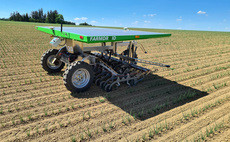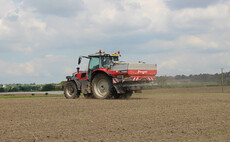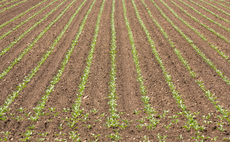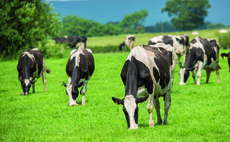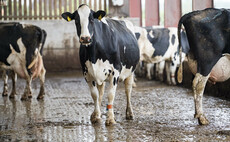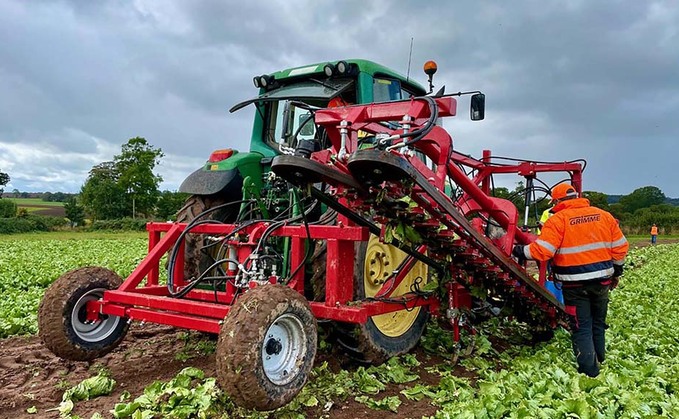
Research centres across the UK are reporting encouraging results from trials which they hope will bring solutions to farming's most pressing problems.
A partnership between the Centre for Innovation Excellence in Livestock (CIEL), the University of Leeds, AHDB and technology company N2 Applied, is looking at how proactive slurry management can be an effective method in helping the agricultural industry reach its net zero emissions target.
The National Pig Centre, co-developed by CIEL and the University of Leeds, is the first commercial-scale pig facility to trial N2 Applied's innovative plasma treatment system for slurry.
The technology enables local production of organic fertiliser from slurry or digestate using air and electricity. It adds nitrogen from the air into the liquid substrate, increasing the nitrogen content.
The reaction stops the loss of ammonia and reduces emissions, making it an efficient and sustainable fertiliser - delivering on-farm reductions of methane and ammonia emission.
The value treated slurry delivers to enhanced soil health and fertility is currently being monitored.
ADAS and Arla are also trialling the technology's effectiveness in the dairy sector.
Lyndsay Chapman, CIEL chief executive, said: "This is just an example of the innovative tech and science happening now, to deliver solutions for the future.
"Today's research ensures tomorrow's farming industry is better equipped to deal with challenges.
Positive contribution
"A new era of livestock production, one that embraces agritech, will help ensure farming can make a positive contribution to deliver the transition to net zero."
Ceres Agri-Tech, which helps UK universities access funding to commercialise their agritech research, said its robotic strawberry picking technology could help address the sector's labour shortage and allow growers to increase yields and reduce waste.
Raymond Kirk, founder of FruitCast, said image data was being used to measure individual fruit numbers, along with the weight and maturity state of millions of berries each day.
This data was then being combined with weather forecasts in algorithms to predict yield with unrivalled accuracy six weeks ahead of existing systems.
He said: "The UK produces 120,000 tonnes of strawberries each year, with a retail value of £659 million.
"Predicting the timing and yield of strawberries is critical for the industry - but extremely difficult to do accurately.
"We are creating a system that will benefit strawberry growers through improved sales and reduce supply chain friction and crop waste."
In the field veg sector, machinery manufacturer Grimme has been working with partners including Agri-EPI Centre and Harper Adams University and backed by funding from Innovate UK to develop a robotic solution to automate lettuce harvesting which could reduce harvesting labour requirements by 50 per cent.
Continuously evolved
Richard Ellis, innovation and research project manager of Salad Harvesting, a subsidiary of G's Fresh, which is trialling the technology, said while the process of lettuce harvesting has continuously evolved over the past 30 years, ‘the cutting process of an iceberg was the most technically complicated step in the process to automate'.
The project will adapt existing leek harvesting machinery to lift the lettuce clear from the ground and grip it in between pinch belts.
The lettuce's outer, or ‘wrapper', leaves will be mechanically removed to expose the stem. Machine vision will then identify a precise cut point on the stem to separate lettuce head from stem.
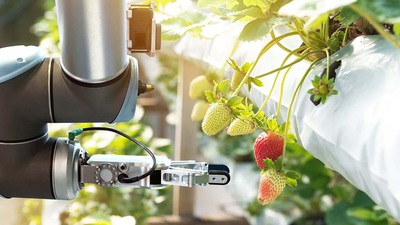










![Farming industry get behind FG's SAVE BRITAIN'S FAMILY FARMS campaign: "[This] campaign will help deliver our message to Government"](https://image.chitra.live/api/v1/wps/877bbe7/0f91ad70-ab9b-4ac9-bc2a-53dfa9e75558/10/BOB-Nigel-Owens-0848-Recovered-323x202.jpg)


